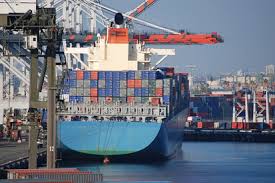The International Monetary Fund released a report on Tuesday that domestic shocks in G20 emerging economies are having an increasing effect on the global economy.
These nations, which include Argentina, a country prone to default, and China, the second-biggest economy in the world, have integrated themselves so deeply into the global economy, especially through trade and commodity value chains, that they are “no longer simply on the receiving end of global shocks.”
Laptops 1000In a chapter of its World Economic Outlook report, the IMF stated that “since 2000, spillovers from domestic shocks in G20 emerging markets — particularly China — have increased and are now comparable in size to those from shocks in advanced economies,” ahead of the IMF World Bank Group Spring Meetings in Washington, DC, next week.
According to the report, after three years, domestic shocks in China can account for up to 10% of output variance in other developing markets and 5% in advanced countries, while shocks from other G20 emerging markets can explain up to 4% of the variation in other emerging and advanced economies.
Because economies are interwoven, there is a risk that distant countries may experience shocks, but there is also potential for them to benefit if their economies recover.
Since 2000, the aggregate GDP contribution of the ten emerging economies that make up the G20—Argentina, Brazil, China, India, Indonesia, Mexico, Russia, Saudi Arabia, South Africa, and Turkey—has increased by more than twice as much.
China has been the main driver of the nearly threefold increase in spillovers since the early 2000s; spillover risks from Brazil, India, and Mexico have also increased, but more weakly.
With high levels of local government debt restricting infrastructure investment and the property market starting its fourth year of free collapse, China is finding it difficult to overcome protracted economic headwinds. There is also a drag on investor and consumer confidence.
According to the IMF, the Russian economy’s turn towards Asia is expected to change the direction of spillover effects.
The IMF issued a warning, lowering the medium-term growth outlook to 3.7%, and predicting that the average growth of 6% annually over the previous 20 years would decelerate throughout the G20 emerging markets.
It urged decision-makers to fortify policy frameworks and preserve adequate buffers to handle future shocks.
“The subdued outlook for G20 EMs risks spilling over and setting back growth and development across other emerging market and developing economies,” it stated.


















